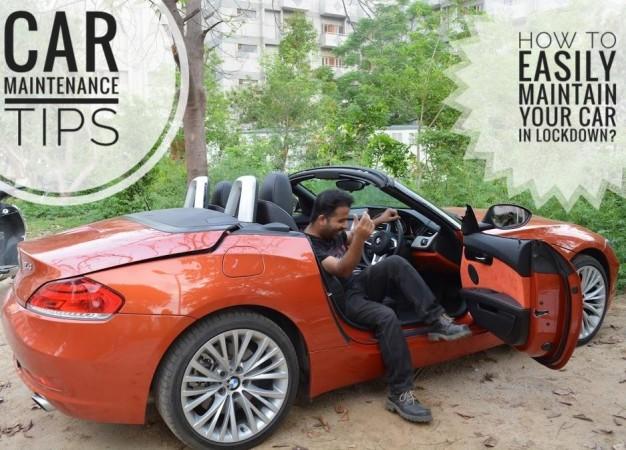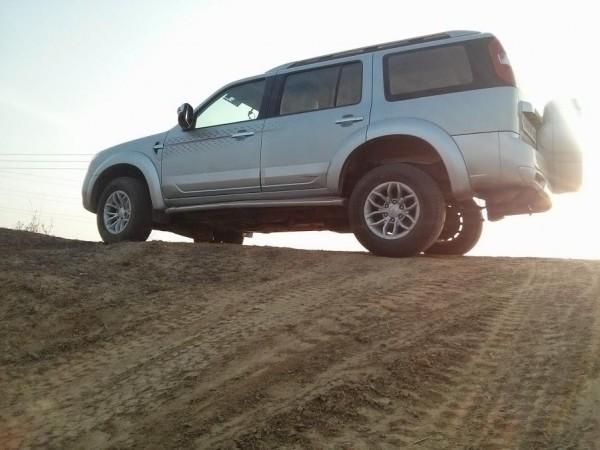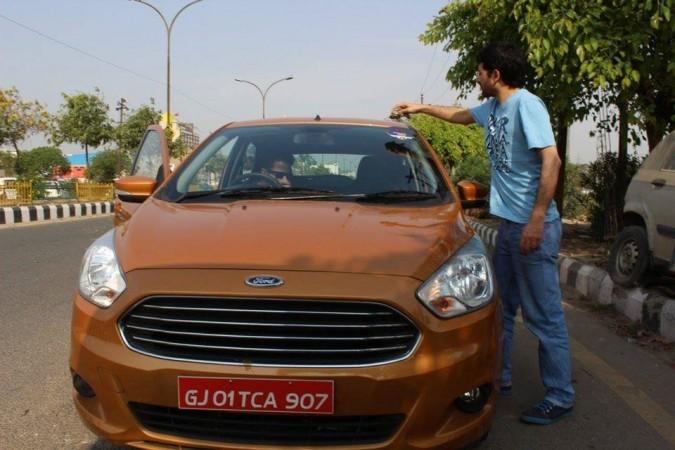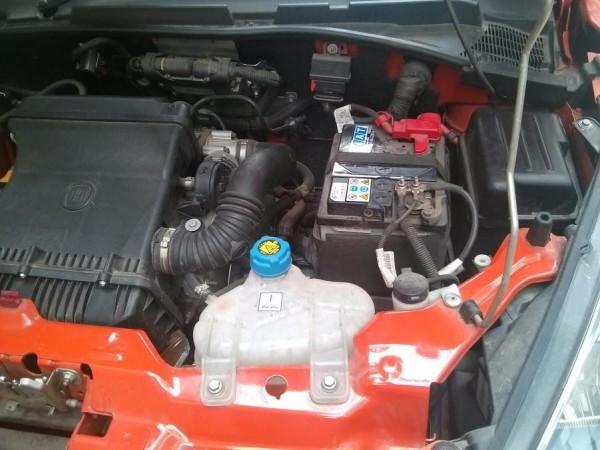First of all, don't panic! If all the recent advisories, including this one, on how to take care of your vehicle in this lockdown, are making you anxious, then let us tell you that it's really not that big a deal. Your vehicle will not become a rust bucket if left unattended for a couple of weeks, unless you thought it was a good idea to see if it floats and ended up submerging it in a swimming pool.
The only difference between a car that's cared for in this lockdown and one that's not, is that in the latter case you might have to spend a day or two, after the lockdown ends, in fixing it before you can drive it again. Whereas a maintained car will save you from that trouble.

What all can go wrong if you just forget that you have a car in this lockdown? The best case scenario may just comprise a dead battery, flat tyres, and a car covered in dust. The worst case scenario will have all of that along with rust, deformed/cracked tyres, chewed (by rats) wiring, jammed emergency brake, a couple of damaged seals, hoses, gaskets, etc., and a broken windshield if you're really unlucky.
Again, you don't have to panic. Just follow these four basic car maintenance tips, and you shall be sorted. Also, like we mentioned in our story on bike maintenance tips, none of this would apply to you if you're still able to drive your car at least once in two weeks. That said, you may still want to read on in such times of uncertainty.
Park it right
It's great if you have a covered parking. However, if, like the majority, you have no option but to park your car in the open, you should protect it from the sun, dust, bird droppings, and rain by using a body cover for your car. It would also provide protection from flying debris and small stones that chip your paint and, in a worst case scenario, crack your windscreen.

If you do not have a body cover, you may use a bedsheet to cover your car. Push some of it between the wiper blades and windscreen so that it doesn't fly off in strong winds. The wiper blades and windscreen will also thank you for the favour. But make sure to remove the bedsheet completely in case it rains. Carry an umbrella for yourself.
Clean it right

If you're someone whose car's cabin is littered with half empty packets of chips, etc., then you're just contributing to the rats' potluck party. The aforementioned 'chewed wiring' is a direct result.
Therefore, clean your car's cabin thoroughly, including the little food particles strewn on the floor mats. Check the boot as well for any edible remains.
Charge it right
Like you burn calories even while sleeping (don't let that be an excuse for not exercising though), a battery also continues to lose some of its 'charge' even when the car is shut off. It's a slow process, but one that would leave the battery dead if you don't attend to it for weeks.

Therefore, the best thing to do would be to start your car, at least once a week, and keep the engine running for 10-15 mins. After the first 2-3 minutes, give a few blips of the throttle every minute or so, but do not redline (pressing the accelerator down completely) the engine.
Also, please remember that you are in the car to charge the battery, and not to listen to music, charge your phone, etc. Therefore, avoid putting any extra load on the battery by switching the music system on, charging your electronic devices, etc.
Moreover, choose a cooler period of the day (early mornings or late evenings) so that you are able to successfully resist the urge of switching the AC on the moment you get in the car. Of course, you should switch it on later (after the first five minutes of the engine running) for a couple of minutes , with the windows down, to let the HVAC system clear its lungs.
If you think that you won't be able to do any of it, please disconnect the negative terminal of your car's battery.
Rounding it right
Flat-bottomed steering wheels are sporty; flat-bottomed wheels (tyres) aren't. You may or may not have the former in your car, but you sure will get the latter if you plan to ignore your car for weeks on end. Because, like 'charge' in battery, 'air' in tyres is not a permanent resident. It will leave its abode if not replenished from time to time.
Therefore, if you foresee that you won't be able to drive at all for a few weeks, there is no harm in increasing the air pressure in all tyres by around five psi more than the maximum level recommended in your owner's manual. It's generally around 30-35 psi for most cars, so, accordingly, 35-40 psi will be enough to keep the tyres smiling for a couple of weeks. It would also help in minimizing flat spots on your tyres. Check, and repeat if necessary, every two weeks.
While at it, just push the car a couple of inches ahead or back so that the tyres turn a bit to take the stress off from the same contact patch that has been bearing it for weeks.
Changing the direction in which it's parked will be even better—not just for the tyres, but for the entire car. No, it's not Feng Shui or Vastu, but the simple fact that changing the direction will involve at least one 3-point turn, or a U-turn, accompanied with a few forward and reverse maneuvers to align the car properly. And how does all of that help? Well, improving your parallel parking skills is an offshoot, but the main reasons are: varying throttle inputs are good for your engine and battery, and parking maneuvers give the steering rack, tie-rod ends, and tyres a good workout. Do this once every two weeks. Please don't hit the neighbour's car while at it.
Hold it right
Do not engage the handbrake to hold the car in its place! If you have already, then release it, and put the car in gear (if it's a manual car) or in 'P' mode (if it's an automatic car). If you must use a stone/brick or two behind one of the tyres for added peace of mind, please do, but don't forget to put them aside BEFORE moving your car so that they don't become a nuisance/hazard for others.
That's all you need to do as far as car mainetance during lockdown goes!

















![India Auto Roundup: Maruti Suzuki, Mahindra have exciting launches in November [details here]](https://data1.ibtimes.co.in/en/full/805520/india-auto-roundup-maruti-suzuki-mahindra-have-exciting-launches-november-details-here.jpg?w=220&h=135)